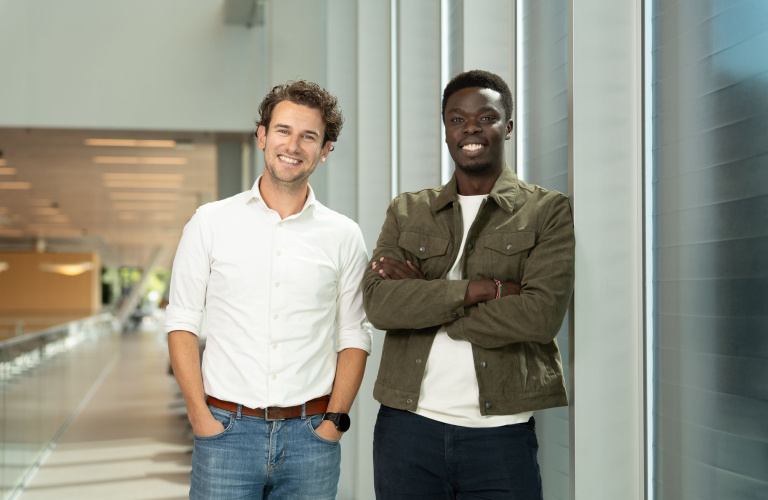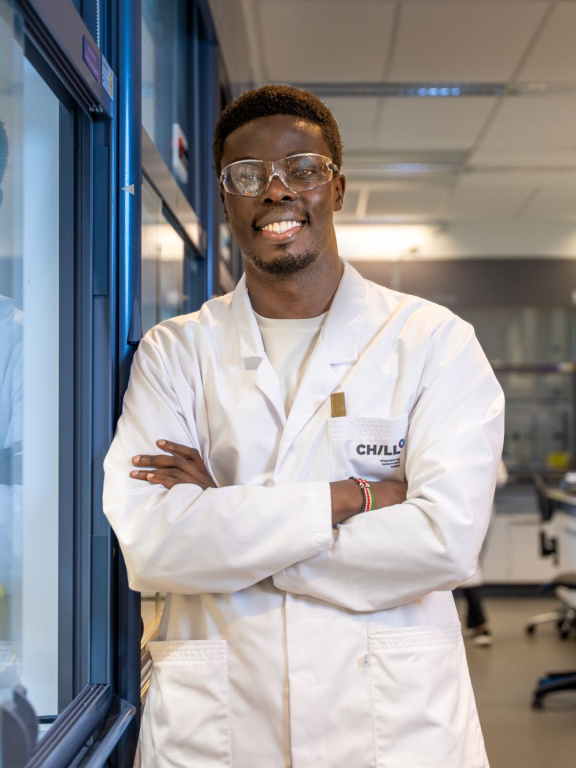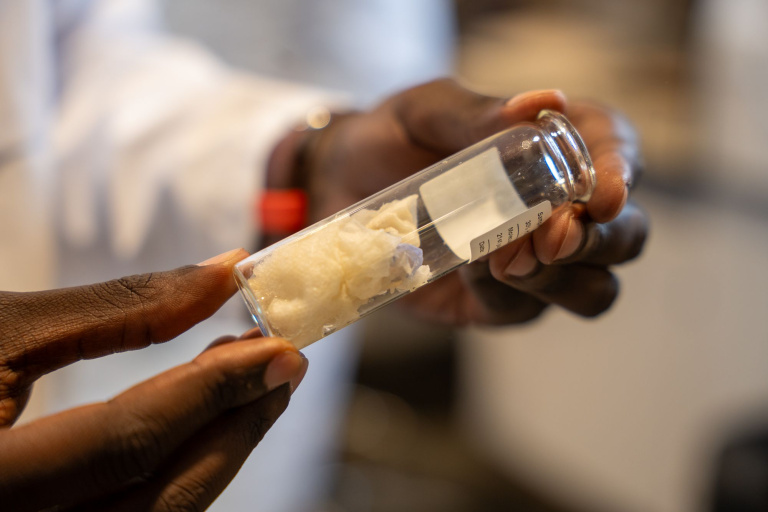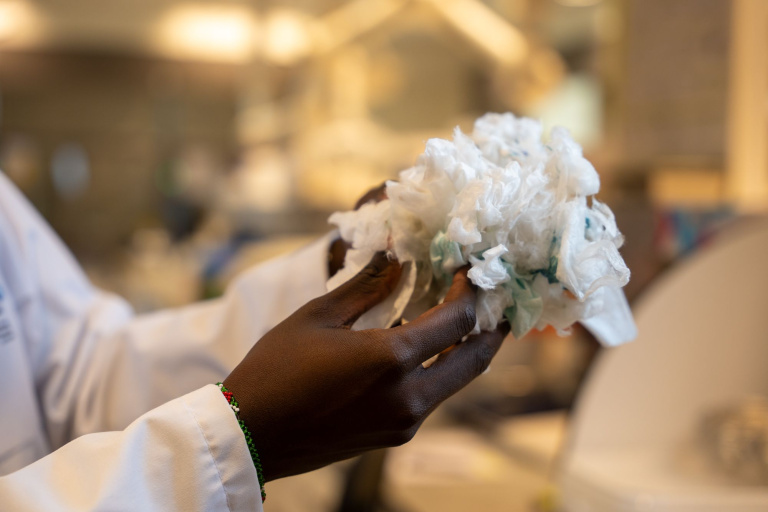From disposable nappies to valuable raw materials
Every year, hundreds of millions of disposable nappies end up in landfill or incinerators, around 8.5 million tonnes in Europe alone. Melvin Kizito is working on a solution with his start-up Alkyl Recycling: a sustainable chemical treatment that converts waste into valuable raw materials. Thanks to financial support and guidance from LIOF, the engineer, who grew up in Kenya, is turning his idea into reality. The next milestone is the construction of a pilot plant, which will bring large-scale application of the technology within reach.
A project by
Participaties & FinancieringWant to know more?
Neem contact op
Dirty nappies are transformed into clean plastic, cellulose and gel. Valuable raw materials, perfectly suited to the desired transition to a circular economy. It sounds too good to be true.
Melvin Kizito grins broadly. “But it's true”, says the 31-year-old entrepreneur and chemist, "and it's sustainable too. Using a mix of harmless chemicals, a used nappy is broken down into the three raw materials it was originally made from. Faeces, viruses, bacteria, traces of medication, all harmful substances are rendered harmless. And because this takes place in a reactor at room temperature, during a chemical process, with minimal energy consumption and in a sustainable manner."
“I am optimistic because we have a solution to a major waste problem. What's more, I see a solid revenue model.”
Thanks to early support from LIOF, Alkyl Recycling was quickly able to move from idea to practice. With financial resources and guidance from the organisation, the first experiments were carried out in the CHILL laboratories at the Brightlands Chemelot Campus. The positive results formed the foundation for further growth, with the next milestone being the construction of a pilot plant. This brings large-scale application of the technology within reach and enables the Limburg region to play a key role in the circular processing of nappies.



From Nairobi to Geleen
Melvin Kizito has no shortage of self-confidence and perseverance. After graduating from the University of Nairobi, he worked with two fellow students to develop the idea of turning used nappies into fuel and later into raw materials. The trio won a national award, but the step to setting up a real company proved insurmountable. Melvin refuses to be discouraged, borrows money for a plane ticket and travels to Delft in 2022. He expects to have a better chance of obtaining financial support and subsidies for his idea here. However, doors remain largely closed in the west of the country as well. He is allowed to pitch his plans and ideas, but no one is willing to make laboratories available for experiments with dirty nappies.
Opportunities in Limburg
This is possible at the Brightlands Chemelot Campus in Geleen, where he finds an enthusiastic advocate in business developer Hugo Delissen. The same goes for Remon Plummen, investment manager at LIOF: “I was immediately convinced, Melvin's plans fit seamlessly with our strategy to promote sustainability and circularity and bring start-ups in Limburg to market. Moreover, we want Limburg to be a leader in the transition to reusing raw materials such as plastics instead of new plastics made from oil. Nappies are 80 per cent plastic and cellulose, which are extremely useful materials.’
From lab to practice
Melvin successfully applied for funding from LimburgToekomstbestendig (Future Proof). With the money, he had tests carried out in the CHILL laboratories on campus. In 2023, local experts confirm what the Kenyan already knew: the formula works. In the next phase, a year later, he succeeds in successfully processing 150 kilograms of dirty nappies in a reactor vessel. Again with financial support from LIOF (Limburg Early Stage Financing (LVFF) and support from a second party. An essential step. ‘Because I can show something concrete. Look,’ he says proudly as he places three bags on the table, ‘plastic granules, cellulose and a super-absorbent gel that can be used to make glue, for example.’
Pilot plant on campus
The next big step is the construction of a pilot plant on campus that will process around 1,000 kilos of nappies every day. Alkyl wants to use this to demonstrate that the process works on a large scale and is profitable. ‘We are talking with various investors,’ says Melvin, who has now expanded his team with a researcher and a commercial director. "I am optimistic because we have a solution to a major waste problem. What's more, I see a solid revenue model. There is plenty of supply and the output consists of valuable materials. Waste processors are interested, and it is also attractive for nappy manufacturers if they become responsible for processing the waste from their products in the future."
Venture capital is needed
Remon Plummen of LIOF is also optimistic, but knows that venture capital for pilot plants is scarce. “This start-up has potential, that's for sure. The pilot plant has to be built, and eventually the mature recycling plant. We definitely want to stay on board, but we can't do this alone; Alkyl also needs other investors. The future will become clearer in the coming months.”
Contact
You don't need to wonder whether LIOF is right for you: just give us a call. Together with you, we will look at how we can help your business grow (further).


